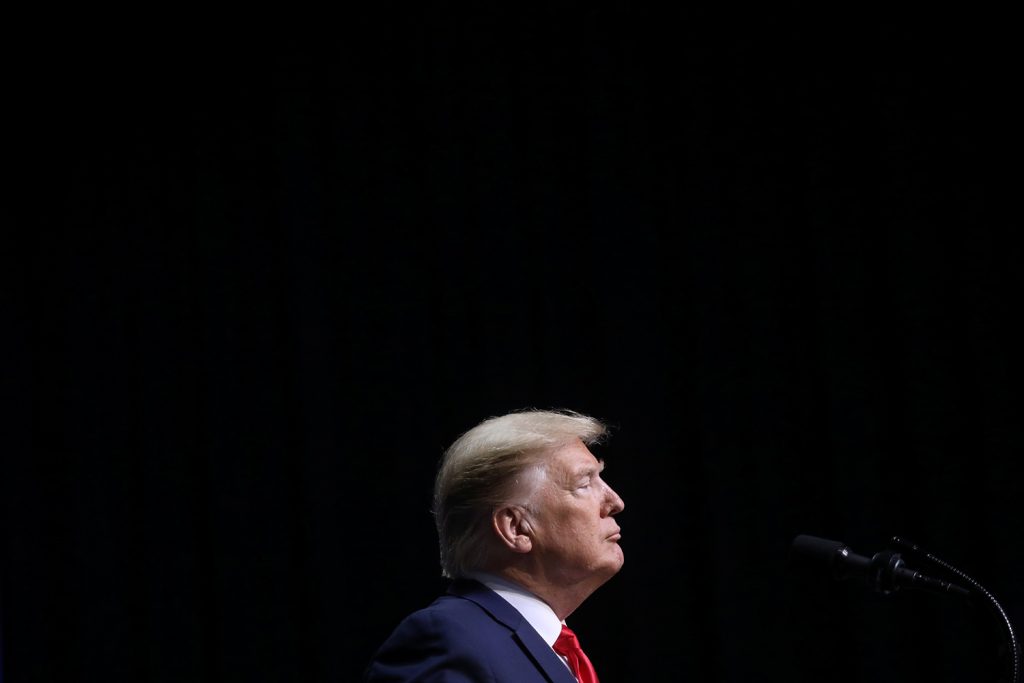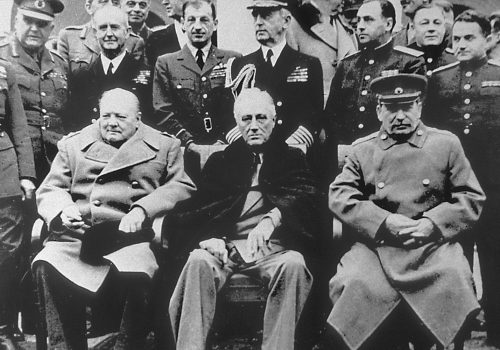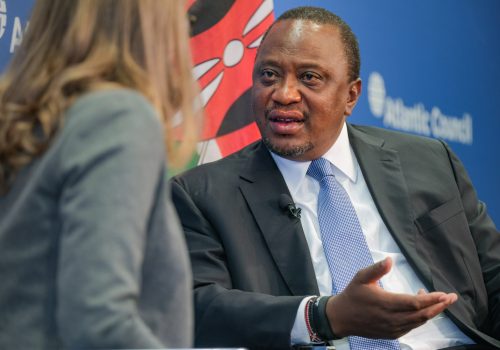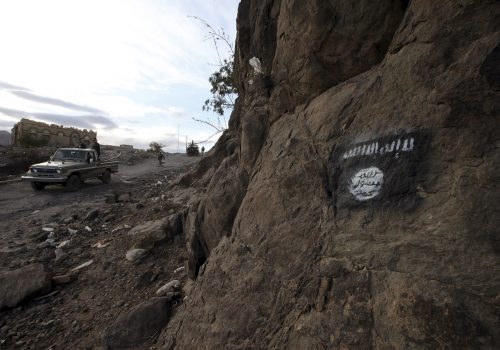Question: What does the Chinese coronavirus, thus far killing 811 people (and counting), have in common with the Iranian shoot down of a commercial airliner last month, leaving 176 dead?
Answer: Both are “black swan” events that expose the flaws of authoritarian governments in dealing with unanticipated crises.
More to the point, both provide President Trump unforeseen opportunities to advance the two most significant foreign policy issues of his administration – changing China’s unfair trading practices and pushing back against Iran’s malign behavior.
By definition, black swan events are rare, unpredicted occurrences that have the potential for far-reaching consequences.
In the case of Beijing, global concerns over the spread of coronavirus provide the chance for Washington to rally a more cohesive set of countries in Asia and Europe to demand full Chinese transparency in the handling and spread of the virus. That, in turn, could be a step toward coalescing like-minded democratic countries to address a host of other Chinese-related concerns.
Regarding Iran, recent events provide Washington a new chance to re-engage its European partners on efforts to contain Iran’s nuclear ambitions, reign in its development of ballistic missiles, and push back on its support for regional proxies and global terrorist activity. Iran’s newest moves to break out of its current nuclear constraints, for example, have moved France, Germany, and the United Kingdom in Washington’s direction.
There’s just one problem.
For the United States to seize these openings, irrespective of who is elected president this November, it will have to regain its appetite for – and rediscover its skill at – building the sorts of alliances and like-minded coalitions that have been the bedrock of U.S.-led global leadership for the past 70 years.
An ideal time to advance this effort would be at this week’s Munich Security Conference, the most important transatlantic gathering this year. The U.S. will be fielding its largest delegation ever, including 18 Senators and 39 members of the House of Representatives. Most importantly, President Trump will be sending three cabinet members: Secretary of State Mike Pompeo, Secretary of Defense Mark Esper, and Secretary of Energy Dan Brouillette.
For President Trump, this would demand a rethinking of how to execute his “America first” approach to global affairs. Yet if there’s one matter on which even many of Trump’s political allies and current and foreign officials generally agree, it is that the President has hurt American interests by undervaluing and, in some cases, needlessly undermining American alliances and long-time partnerships.
The notion that the United States could address emerging global challenges alone, without making greater effort to galvanize Asian and European partners in common cause, was always short-sighted. With every year of Chinese growth and Iranian aggression, the urgency grows for a change in direction.
Get the Inflection Points newsletter
Subscribe to Frederick Kempe’s weekly Inflection Points column, which focuses on the global challenges facing the United States and how to best address them.
Regarding Beijing, apprehensions have grown in lockstep with China’s expanding influence. China’s share of global GDP has quadrupled to 16.3% in 2019 compared to 4.2% in 2003, when it last wrestled with the SARS pandemic threat. On its current trajectory, China is on track not only to be the world’s largest economy but also over time to become the world’s dominant political force, technological leader, and even military power.
Regarding Iran, the accidental shoot down of the Ukrainian Airlines 752 on January 8, and the regime’s initial efforts to conceal its responsibility, have provided a new opportunity in Iran and internationally.
In Iran, public protests that were aimed at the U.S. for its drone-strike killing of Major General Qasem Soleimani on January 3rd have morphed into protests targeted against Iran’s corrupt, opaque, and authoritarian leadership.
Initial fears among U.S. allies that President Trump had acted recklessly in killing Soleimani have now shifted into conversations about the need for a new initiative with Tehran to avoid escalation risk or nuclear breakout.
The good news is that President Trump has at least three immediate opportunities to repair relations with his European allies, and members of his administration are already taking some steps to do so.
Those three fronts include:
Reducing tensions and deepening integration in the Western Balkans. For example, Richard Grenell, President Trump’s special envoy for Kosovo and Serbia, this week urged the new Kosovo government to deliver on promises to abolish punitive tariffs on Serbian goods that have blocked negotiations between the two parties, having previously brokered a tentative deal to resume rail and airway links.
Promoting the “Three Seas Initiative,” an unfolding effort to more closely link, from north-to-south, the economies of the twelve European Union members of Central Europe. This effort has recently gained new momentum, due to growing interest among senior Trump administration officials, ahead of a head-of-state summit in Estonia this June.
Avoiding the implementation of new tariffs on Europe while seeking a pathway to transatlantic trade and investment talks. President Trump’s off-hand comment in Davos about the possibility of a “big trade deal,” before meeting with President of the European Commission Ursula von der Leyen, reflects a change of tone inside the White House from new tariff threats to new deal opportunities.
Regarding Iran and the Middle East, the prospects are less promising but nevertheless growing.
The muted regional response to the Trump administration’s new Mideast peace offering underscores Arab fatigue with the status quo and the promise of their improved relations with Israel in the face of the Iranian threat.
To its credit, the Trump administration began efforts toward greater regional integration by creating the Middle East Strategic Alliance (MESA), a security partnership between Gulf Cooperation Council nations, Jordan, and Egypt.
That said, efforts to push it forward have stalled. MESA also neglected the greatest opportunity of all in a more integrated regional economy.
It may seem far-fetched to expect a US administration in the final months of its first term to look for breakthrough opportunities regarding China or Iran. It might seem out of character for President Trump to reach out so assertively to allies on either front.
That said, President Trump has never been an orthodox leader, and he might be swayed by the reported advice of Machiavelli: “Never waste the opportunity provided by a good crisis.”
Game-changing progress with China and Iran won’t be easy or immediate. It also won’t be possible without greater common cause of the United States alongside partners and allies around the world.
This article originally appeared on CNBC.com
Frederick Kempe is president and chief executive officer of the Atlantic Council. You can follow him on Twitter @FredKempe.
Must-reads from a world in transition
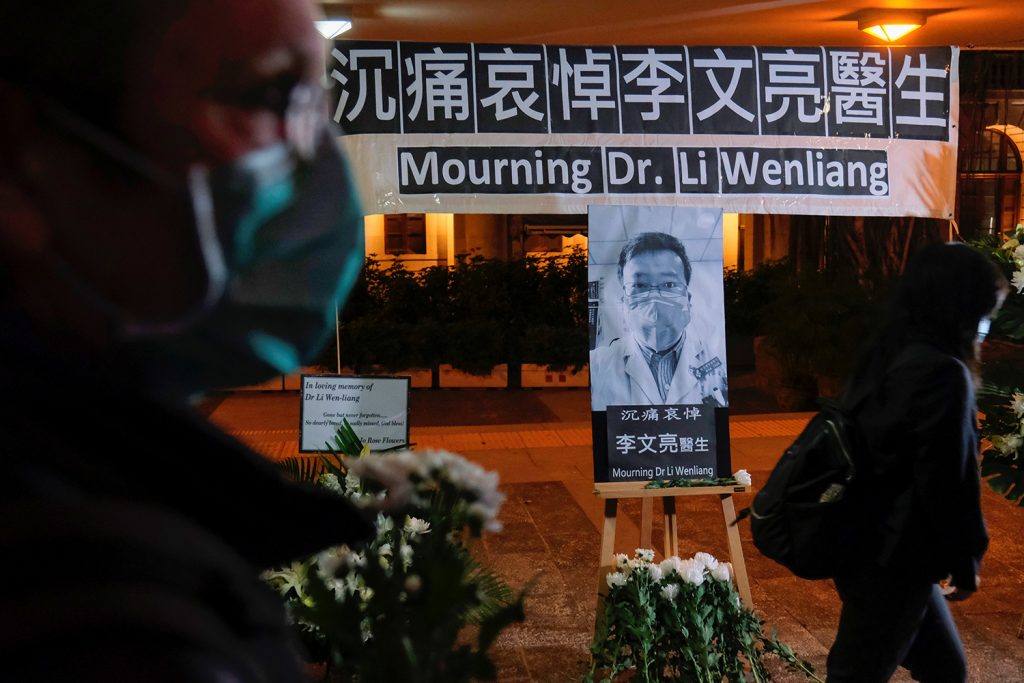
This week’s top reads include former Assistant Secretary of Homeland Security Lisa Monaco’s look how the U.S. must treat pandemic diseases as a national security threat and James Taylor’s look in Foreign Policy at China’s first coronavirus martyr. The Washington Post’s David Ignatius looks at the weaknesses revealed in China’s authoritarian system in dealing with the virus.
Also don’t miss Australian Prime Minister Kevin Rudd’s look at President Xi Jinping’s emerging “self-reliance” strategy and the Economist’s look at a most disturbing recent event in German politics, the election this week for the first time of a state premier with the support of the far-right Alternative for Germany party.
This week’s must-read is a compelling combination of writing and reporting, by Adam Entous and Even Osnos in the New Yorker, on the recent history of “targeted killings” that resulted in President Trump’s drone strike on Iran’s Qassem Solomeini.
#1 THE US AND CORONAVIRUS: “DEFENDING FORWARD”
The Coronavirus Shows Why the U.S. Must Make Pandemic Disease a National Security Priority
Lisa Monaco / LAWFAREBLOG
Lisa Monaco, former assistant secretary for Homeland Security, sounds the alarm about what the United States ought to be doing (and isn’t) in response to the potential pandemic of coronavirus.
“If the U.S. is to treat pandemic disease as the national security priority it should be,” she writes, “the government must improve in three areas: White House leadership and organization; U.S. leadership in addressing pandemics on the global stage; and making sure policy is guided by facts, not alarmism.”
Instead, the Trump administration in 2018 pulled down the directorate dedicated to pandemic response and preparedness. Such directorates exist for cyber and for terrorism, but as Bill Gates has said, pandemics are likely to kill far more people in the years ahead. Read More →
#2. CHINA’S CORONAVIRUS MARTYR
Wuhan Gets Its First Virus Martyr
James Palmer / FOREIGN POLICY
The coronavirus outbreak shows the vulnerability of the ‘Chinese model’
David Ignatius / THE WASHINGTON POST
The coronavirus outbreak shows the vulnerability of the ‘Chinese model.’
When Li Wenliang in December posted an early warning about a new virus, local police threatened the 34-year-old doctor and forced him to sign a statement saying he wouldn’t make further trouble.
News of his death on Friday spread “like wildfire” on social media, writes James Palmer in Foreign Policy. That said, the Chinese government saw to it that reports of his death and threads about him – one of which had 5 million comments – were deleted. Read More →
“China’s command economy, managed by a one-party dictatorship, has achieved miracles in recent decades,” writes David Ignatius. “But we’re now witnessing a striking reminder of the need for open sources of information and public officials who aren’t cowed by political pressure.” Read More →
#3. CHINA’S “SELF-RELIANCE”
Has the “Great Decoupling” Gone Viral?
Kevin Rudd / PROJECT SYNDICATE
Former Australian Prime Minister Kevin Rudd, who is also an Atlantic Council International Advisory Board member, is always one of the keenest observers of today’s China.
His long-form piece this week in Project Syndicate is particularly worth reading for its argument that President Xi Jinping is working to “insulate” himself from American coercive action – with evidence of doing so in capital markets, trade flows, foreign direct investment, technology, and talent.
“China, after all, has a long and celebrated tradition of zili gensheng (self-reliance),” he writes. “Those of us who follow the country closely have noted with some alarm that this old slogan from the pre-reform days has reappeared since the start of the trade war some 18 months ago.” Read More →
#4. GERMAN FRAGMENTATION
The splintering states: A pact with the far right in Thuringia rattles German politics
THE ECONOMIST
You may have missed a moment in German political history this week.
For the first time, a German state premier, equivalent to a US governor, was elected on the back of votes from the far-right Alternative for Germany. Chancellor Angela Merkel called it a “bad day for democracy” and her partners the Social Democrats called it “a low point in post-war German history,” writes The Economist.
The magazine rightly considers the news of this week to be “just the most extreme example of the fragmentation of Germany politics.” At a time when Europe can least afford German political instability or unpredictability, that’s precisely what may be coming. Read More →
#5. THE FUTURE OF “TARGETED KILLINGS”
Qassem Suleimani and how nations decide to kill
Adam Entous and Evan Osnos / THE NEW YORKER
New Yorker writers Adam Entous and Evan Osnos provide this week’s must-read, a rich account of the history of “targeted killings” that paved the path toward the drone strike in January that killed Iran’s Qasem Soleimani.
Their story begins with another lethal operation in Lebanon in February, 2008 – one that had the chance of taking out Soleimani even then – related with all the color, drama, and precision of a movie script. They then fast forward to this year’s killing and the calculus, related to the president by his CIA Director Gina Haspel, of why the risk of inaction was greater than action.
“Trump’s order (to kill) was the culmination of a grand strategic gamble to change the Middle East,” the authors write, “and the opening of a potentially harrowing new front in the use of assassination.” Read More →
Quote of the week
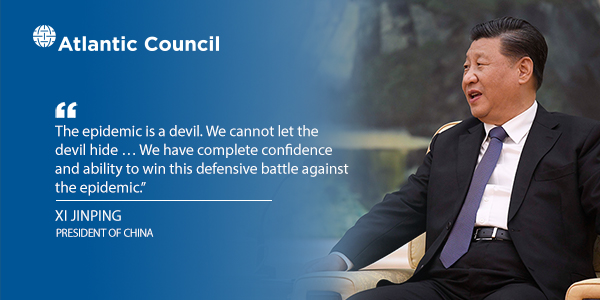
Atlantic Council Top Reads
Image: U.S. President Donald Trump delivers a speech at the North Carolina Opportunity Now Summit at Central Piedmont Community College in Charlotte, North Carolina, U.S., February 7, 2020. REUTERS/Leah Millis
